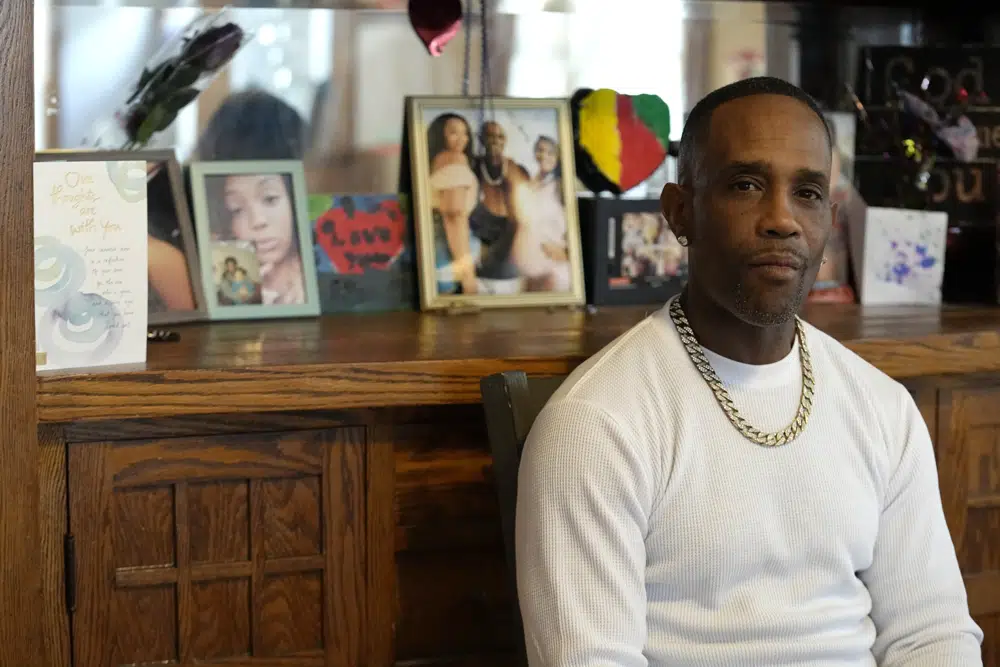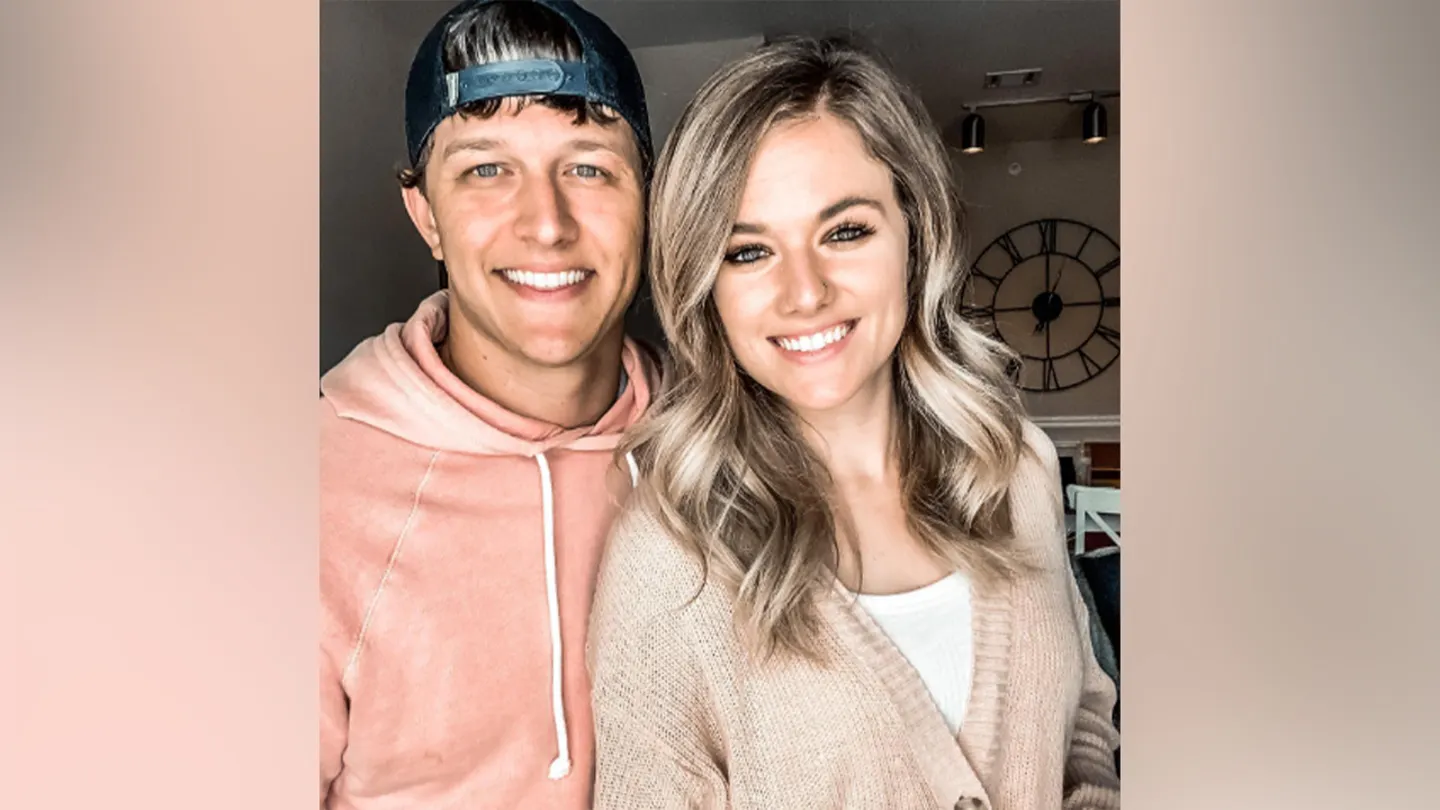ST. PAUL, Minn. (AP) — On a September day that he knew would be hard, 51-year-old Damone Presley marked the occasion with barbecue and balloons.
He was commemorating the one-year anniversary of the day in 2021 that his daughter and her three friends were fatally shot in Minnesota by a man who left their bodies in an abandoned SUV in a Wisconsin cornfield. Presley gathered 50 friends to celebrate the life of his daughter, Nitosha Flug-Presley, who was 30 when she died. He went big on the anniversary because he felt sure that’s what his daughter would have wanted.
“She would always do stuff big,” Presley told The Associated Press.
There have been 553 mass killings in the United States since 2006, and at least 2,880 people have died, according to a database maintained by The Associated Press and USA Today in partnership with Northeastern University. Those include killings where four or more died, not including the assailant, within a 24-hour period. So far in 2023, the nation has witnessed the highest number on record of mass killings and deaths to this point in a single year.
As the number of people who die in mass killings in the U.S. continues to rise, thousands more are left to handle the trauma of losing someone they love to a senseless act of violence. They struggle with a special kind of grief, haunted both by the loss and by how it happened.
One of the hardest days they confront each year is the anniversary of the killing.
This Wednesday, families in Uvalde, Texas, will have to face that one-year anniversary — transporting them back to the day when a gunman entered Robb Elementary School and fatally shot 19 children and two teachers as they gathered to celebrate the end of the school year. And last week, families of 10 people in Buffalo, New York, crossed the one-year mark from the day a white supremacist shot and killed them in a supermarket.
People cope with these anniversaries in different ways. Some throw a party to get through the pain. Others prefer to be completely alone. Many fall somewhere in the middle, adopting little rituals to help get them through the day.
But they all grapple with the same question, sometimes after many years have passed:
What do I do with myself on the date that changed everything?
On the same day Presley gathered with friends and family at his home, Angela Sturm — whose children, Jasmine Sturm and Matthew Pettus, were killed in the same attack — chose to spend the day alone.
“I turn down invites to ‘celebrate’ because it’s not a celebration to me,” she said.
Instead, she honors her children privately by looking at their photos and remembering how their life together used to be. She writes, cries and practices self-care by reading a good book or taking a hot bath. She hopes people will understand that she wants to be alone, and that they shouldn’t worry or be upset if she turns down invitations or doesn’t respond to texts.
Everyone deals with grief differently, said Jeffrey Shahidullah, a pediatric psychologist at UT-Austin Dell Children’s Medical Center.
Shahidullah was part of a team that stayed in Uvalde for months after the shooting to operate a crisis walk-in clinic for first responders, community members, family and friends of victims.
In the short and long term, mass shootings can traumatize entire communities, Shahidullah said. That can lead people — even those who didn’t know the victims personally — to avoid situations that remind them of the event, feel constantly unsafe and experience intrusive flashbacks to when they first heard about the killing.
“A lot of these symptoms could be exacerbated or worsened around the time of these anniversaries,” Shahidullah said. “Over time, those symptoms do tend to subside. But everyone has their own timeline.”
___
By cruel coincidence, the first anniversary of the Buffalo supermarket shooting fell on Mother’s Day. That made things especially hard for Wayne Jones, whose mother, Celestine Chaney, was among the 10 people killed by a white supremacist that day.
Jones said some friends came over on the anniversary, and they talked about other things.
“5/14 is every day to me still,” he said. “I watched my mother get killed on video.”
The video and a photo of the shooter — standing with the gun he used, a vulgar racial slur scrawled on its barrel — are “ingrained in my brain,” he said.
Tirzah Patterson and her 13-year-old son, Jaques “Jake” Patterson — who lost his father, church deacon Heyward Patterson, in the supermarket shooting — left town altogether for the anniversary. They have not set foot in Tops Friendly Market since it reopened last summer and did not attend the memorial events in Buffalo for her ex-husband and the others who were killed.
“We don’t want to go through that again,” Tirzah Patterson said before the weekend. “We’re going to be gone.”
They spent Mother’s Day weekend in Detroit and attended a church service there.
___
While some are just crossing the one-year mark, others have been dealing with these anniversaries for years.
Topaz Cooks marked the 10-year anniversary of her father’s death last September. She was a month shy of her 21st birthday in 2012 when her dad and several others were shot and killed at work by a man who was fired from the company in Minneapolis.
“I still cannot believe that happened to my family,” she said.
On the anniversaries, she likes to do things her dad, Rami Cooks, enjoyed. Last year, she went on a hike and ate dessert — because her dad loved rugelach, birds and wind. She loves that her friends send her photos of their dessert that day each year with the caption: “For your dad!”
She also has a journal she writes in once a year on that day, filling her dad in on the highlights, challenges and thoughts from the year that she wishes she could share with him.
Seven years after the killing, Topaz Cooks said she experienced PTSD while working as a theater stage manager. She was surprised because she didn’t expect it to hit so late. The production’s plot may have triggered it — the play was about a woman avenging her father’s death.
She said she would get exhausted at the end of rehearsals, lie down on the floor of her office and feel like she couldn’t get up. At times, she felt like her skin was vibrating or that she was outside of her own body. It took months of therapy to feel like she was back in control.
Talking about the loss isn’t for everybody, but Cooks said it’s important to her.
“I wish that people talked about it more and normalized it,” she said. “Grief is just so lonely.”
A hint of fall hung in the air on Sept. 12, the day Presley threw a party to mark the day his daughter and her three friends were killed and left abandoned. He said he wanted to think about who his daughter was rather than how she died.
She loved to throw exciting and glamorous birthday parties for her kids, friends and family.
Presley placed a life-size cardboard cut-out of his daughter smiling in a pink outfit by the door. Guests wore T-shirts with photos of her and phrases like “Never Forgotten” and “Daddy’s #1 Angel.” At Presley’s request, guests gave speeches about the funniest things they remembered his daughter doing.
Late in the afternoon, they gathered around the front steps of his home, clutching red, yellow, pink and white balloons, some embossed with words like “Forever in Our Hearts.”
Wide-eyed children, following the lead of the adults around them, listened quietly as a woman sang the gospel song “Take Me to the King.” Presley recited a poem his father had written years before, words Presley’s daughter had adored.
“I meet the sunrise daily on the way to get mine,” he recited. “I don’t play myself ’cause I don’t got time.”
When he finished the poem, Presley gave the signal to release the balloons. They soared straight up, gently rising above the rooftops and disappearing into a clear blue sky.
Aaron Morrison and Carolyn Thompson contributed from Buffalo, N.Y.
Trisha Ahmed is a corps member for the Associated Press/Report for America Statehouse News Initiative. Report for America is a nonprofit national service program that places journalists in local newsrooms to report on under-covered issues. Follow Trisha Ahmed on Twitter: @TrishaAhmed15
___
Ahmed’s father, Avijit Roy, was killed on Feb. 26, 2015, by religious militants in Bangladesh. Each year on that date, she throws a party — because he loved celebrations — and surrounds herself with people she loves. This February, they played games and gave a toast in his honor.




